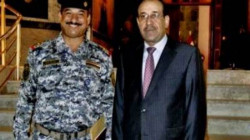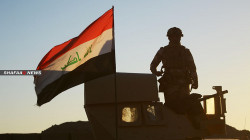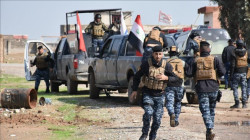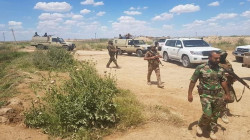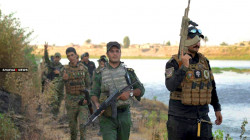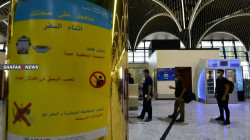‘Everyone has a story to tell’: Iraq five years after Islamic State
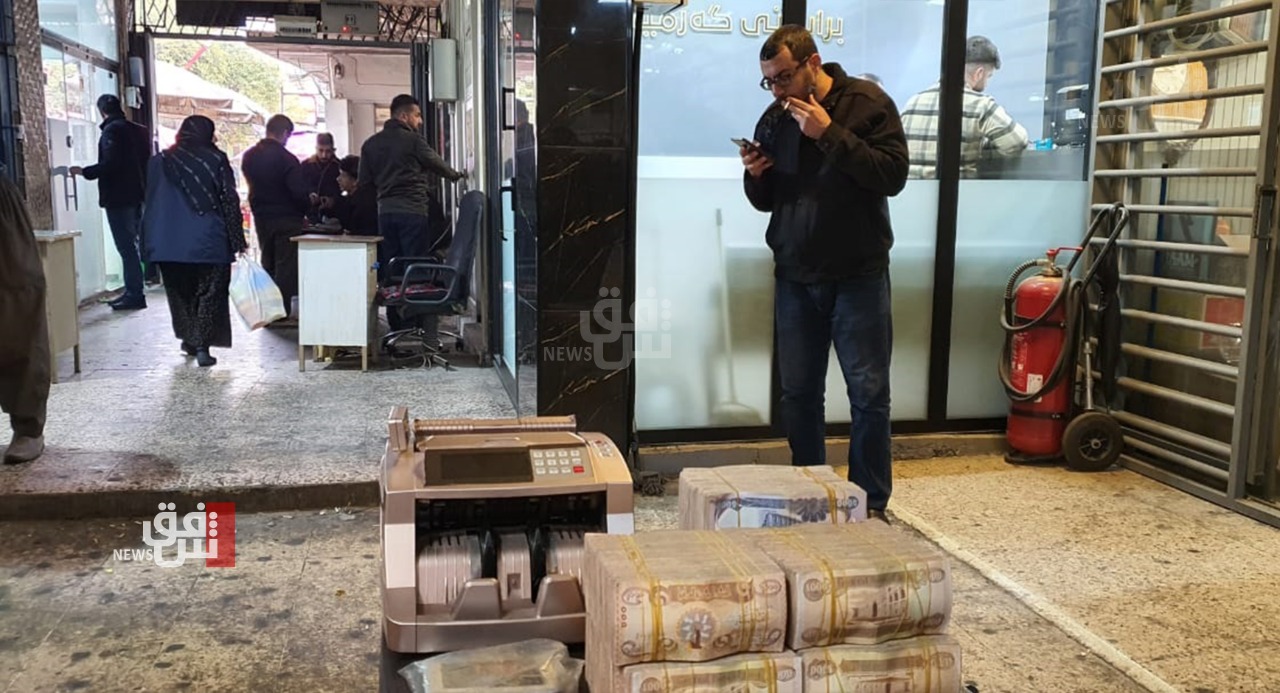
Shafaq News/ It is nearing midnight and the city has come alive. Along the riverbank men play backgammon and smoke shisha. Throngs of children entertain themselves in a nearby amusement park, enjoying precious hours of respite from the blistering summer heat.
The vitality and chaos that cascade down the streets resemble a balmy evening in Rio or Madrid. But this is Mosul in Iraq. And amid all the revelry, remnants of the ancient city’s brutal and bloody history linger on.
This history exemplifies the staggering resilience of Iraqis in the face of great adversity. It shows how progress and hope have followed hardship and loss. But other problems now afflict the city’s residents. They are sobering reminders of the destructive forces that continue to undermine Iraq’s path to stability and prosperity.
Over five years have passed since Mosul, the second-largest city in Iraq, was liberated from Islamic State (IS). Government forces and jihadists had clashed street by street, house by house, wrestling for control over IS’s de facto capital and most prized possession.
In the Old City, on the western shores of the Tigris, the rubble and bullet- riddled buildings bear witness to this brutal urban battle, as well as the three despairing years of IS rule.
“Those were very dark days,” says Othman al-Saiegh, 35, moving between English and Arabic. In a trendy cafe, Saiegh recounts his story of life under IS. The doctor and successful businessman, who owns a slew of pharmacies and laboratories across Mosul, was imprisoned twice by IS militants before he could escape to Baghdad.
“There was no clean water, no electricity … none of the simple things to keep you alive – not even Panadol. People died because they couldn’t find food; they were eating rubbish. And people had to stay at home. And that’s it. There was no freedom.
“They jailed me once for defending my brother when they came to try and kill him. My uncle died in an airstrike … Every family in this city lost at least one or two loved ones.”
Saiegh leads us around the Old City to the Armenian Orthodox Church, where he had been imprisoned in IS’s makeshift jail.
Here a second man comes forward to share his story. On five separate occasions he was held at the church and beaten for smoking and drinking. His home was later burnt down to inflict further punishment. Many others were less fortunate, he noted, and lost their lives or their families for even smaller transgressions.
“Everyone has a story to tell,” Saiegh remarks as we cross the Tigris to East Mosul.
Mosul was the centre of the violent extremism and destructive chaos that have torn northern Iraq asunder in the last decade. It bears the greatest scars.
And yet, there is some hope, seeping through the cracks of the cratered suburbs. Along the banks of East Mosul, which escaped much of the Old City’s destruction, those Moslawis – young and old – enliven the city’s spirit.
Shopping strips are bustling. Locals hop in and out of restaurants, designer replica shops, and the occasional liquor store. Here Saiegh gifts us a bag filled with sweets. He buys a round of raisin juice, a special treat. He is generous and welcoming, like most Iraqis we meet.
Even in the Old City, life is improving. UNESCO’s “Revive the Spirit of Mosul” initiative has proved successful beyond measure in restoring historic sites. And it makes steady progress on its largest project, the reconstruction of the al-Nuri Mosque.
The mosque, built by the Seljuks in the 12th century, was the infamous site of IS’s declaration of its new “caliphate”. Embattled IS forces later destroyed it.
Fatima Ayad, 26, is among the latest batch of students – many of them women – set to begin rehabilitating historic buildings. The Moslawi architecture graduate will soon complete one of UNESCO’s technical and vocational education and training programs. For the past seven months, she has studied methods of conservation and the values and attributes of Mosul and its buildings.
Ayad is proud of her city, its heritage, and the role she will play in its recovery.
“When I go to Nabi Yunus Mosque [a historic site thought to contain the tomb of the prophet Jonah] and stand on the same stones where the Assyrian King Sennacherib stood, it is an emotional moment.
“We have a lot of history – beautiful history as well. So Mosul needs people to help rebuild it. Mosul deserves that. Because it’s not just any city. It’s a very old city, home to beautiful things people can’t even imagine.”
She lauds the progress made so far. “A lot of things have now changed: the buildings, the roads, the people’s mindset. Of course, there is still work to do. But people from many backgrounds are working together to rebuild the Old City … There is some kind of hope.”
‘Mosul needs people to help rebuild it ... [it is] home to beautiful things people can’t even imagine.’
Fatima Ayed, a local architecture student
As the buildings are slowly rebuilt, Moslawis gradually return to their homes.
Tourists are returning, too. With the introduction of a visa on arrival policy for citizens of 37 countries, including Australia, intrepid travellers are racing to see many of the great Mesopotamian treasures they studied in school.
“We’ve already hosted almost 100 tourists and helped many more online,” says Abdullah al-Qazzaz, a recent medical graduate who launched Visit Mosul in 2021. Qazzaz is optimistic about future growth in the tourism industry.
“The city’s been through war; it’s been through difficult times. But now it’s trying to come back better than ever. We want to show that the stereotype that Iraq is all war, explosions and death is wrong.”
Is Mosul restoring its glory of old? Saiegh thinks not. “Life is better. But there are still many problems. There’s corruption, lots of militia. Thieves steal medicine from my stores.”
He harks back to the days of Saddam Hussein, praising the late dictator’s “strong leadership and ability to stay in touch with the Iraqi people”. Many of Saiegh’s compatriots share his sentiment despite the great violence and iniquities that defined Saddam’s rule.
The next day we travel down to Baghdad by car, passing countless army checkpoints. Sometimes we are stopped by sectarian militiamen, reminders of the cavernous divisions that fracture Iraqi society.
At its peak IS controlled around 40 per cent of Iraq, mostly in the north and north-west. It came close to assaulting Baghdad in 2014, seizing the nearby city of Fallujah.
But government soldiers and Shiite militias, with the aid of US air support, drove the jihadists out in 2016, sparking a haemorrhaging of IS territory in the year that followed. Today their control is limited to a handful of scattered desert pockets, if that.
While IS forces never captured the capital, Baghdad was not spared from the terror that gripped the rest of the country. The scars inflicted by all the conflicts that preceded IS’s rise – from the Iraq War to the Gulf War to the Iran-Iraq War and beyond – run deep, too.
The Shahbandar cafe on al-Mutanabbi Street, famous for its bookstores and stalls, has endured this tumultuous time and the tragedies that have accompanied it. It has served as the heart and soul of the city’s literary and intellectual communities for over a century.
Its walls, jammed with photographs of regulars, resemble a who’s who of modern Iraqi history. And it continues to attract a diverse array of patrons – some bespectacled, suit-clad old men, others chic youth – to drink tea, smoke shisha, and chat away the sweltering afternoons. The Australian ambassador, Paula Ganly, had visited only the day before.
Mohammed al-Khashali, the cafe’s long-time proprietor, welcomes us from his usual seat by the cash register. Close to him are five photographs of the four sons and one grandson Mohammed lost in 2007 in a devastating car bomb attack on the street.
“Iraq’s past is more beautiful than its present,” he says, his son translating.
“The cafe is a symbol of Iraq. It’s gone through so much: a fire in 1988, the bomb in 2007 … But the cafe is still here, it is still famous. It survives.
’Iraq’s past is more beautiful than its present.’
Cafe owner Mohammed al-Khashali
“Iraq is ancient, several thousand years old. War is not new; it’s been like this from the beginning, and after 10 years, 100 years it will return. Life gets better then gets bad, like a cycle.”
Such fatalism and resilience is prevalent among Baghdadis. But his prediction may prove particularly prescient as Iraq lurches from one political crisis to another.
Iraq is a nation of sectarian and ethnic divisions. An array of Sunni and Shiite groups – along with the Kurds in the north – jockey for power, producing sociopolitical fault lines that threaten an earthquake.
Broad consensus government, known as tawafuq, has emerged as the favoured political template in post-Saddam Iraq. For several years, it saw some success; the campaign to vanquish IS tethered many groups together.
But such unity was fleeting. As consensus government broke down, Iraq was left rudderless, without a functioning government, for more than a year until parliament elected a new president and a coalition government was formed in October, finally resolving the deadlock.
Within this landscape the Shiite cleric Muqtada al-Sadr has sought to thrust himself into power, gaining traction on an anti-Western and anti-Iranian nationalist platform. He commands strong support in Baghdad and the country’s south. Deadly clashes have raged in recent months between Sadrist militias and rival Shiite factions closely allied with Iran.
Sadr’s loyalists were left frustrated by their inability to form government despite securing the most seats in the parliamentary elections. Exasperation bubbled over into outright unrest.
One week after we leave, Sadr withdraws his MPs from the legislature. In a repeat of their actions in 2016, his supporters then storm the heavily fortified Green Zone, home to most embassies and government buildings. They stage a peaceful protest inside the Iraqi parliament.
Further political paralysis prompts Sadr to resign from politics altogether, sparking more protests and violence.
And so despite the new government, Iraqis remain on tenterhooks as consecutive political crises engulf the nation. They are reminiscent of the turmoil that followed Saddam’s toppling in 2003, and the resumption of civil war is a serious concern.
Supporters of influential Shiite cleric Muqtada al-Sadr try to remove concrete barriers in the Green Zone area in Baghdad in August. AP
Adam Ibrahim, 31, shares this concern, but he smiles as we chat over tea and “England”-flavoured shisha. The gregarious Baghdadi is an avid scientist who has spent several years studying in the US and Europe.
He speaks passionately about his research on immunology, as well as his educational awareness campaigns on COVID-19 and immune systems. He also talks openly about the grave issues imperilling Iraq and its future.
“It’s very hard to be Iraqi. It’s difficult here for people to flourish. Day after day, I’m afraid to forget my dreams. Every day you dig in, dig in. It’s easy to adapt and give up. I don’t want to reach a place like this.”
He laments the lack of adequate educational opportunities available to most Iraqis, particularly women.
“I have many girls at my university. They’re so smart. But they can’t go anywhere – they have to stay at home and marry.
“And if you speak about women’s rights people hate you. The old generation says that this will destroy our culture, destroy our society. But destroy what? These circumstances? Already we’re damaged, already we have big problems.
“Science is for everyone … If you just give them [Iraqis] real science, you’re going to discover the gold in them.”
‘The old generation says [women’s rights] will destroy our culture ... But destroy what? Already we’re damaged, already we have problems.’
Adam Ibrahim, an Iraqi scientist
We move on to the corruption plaguing the country. “In Iraq we have everything. We have food; we have oil. The money here can be so good. But to get this money you have to be like them [the government and militias]. And I don’t want to be like them. It goes against my ethics.
“Right now, the only thing that makes them grow is ignorance … They want you to be ignorant and forget about your rights. We’re trying to stop this ignorance; they’re trying to suppress our science.”
Ibrahim is one of many Iraqis hoping to drive change.
“I don’t want [future generations] fighting to create freedom. I’m spending my life – my minutes, my hours – to give them this. No, I want them to already have freedom, to already have rights ... I have to make change, so they don’t spend half their lives doing the same.”
One of Ibrahim’s friends arrives to accompany us in our quest to sample the city nightlife. He takes us to a building indistinguishable at first from others on the street, weathered by years of war and neglect.
But steel-plated doors along the side and the muffled hum of music suggest this is no ordinary property. The doors open and a bouncer pats us down for weapons on entry.
Up a flight of stairs we find a dimly lit and lavishly decorated bar resplendent with a wide array of alcohols. Peaky Blinders posters adorn the walls, and familiar club hits reverberate from nearby rooms. Soon a tray arrives with several rounds of curiously salt-rimmed Heinekens.
It is all bizarre. But the beer is good, the atmosphere enticing, and the prices preposterous. We enjoy our time and leave feeling we could be back in Sydney or London.
There are other establishments in the capital just like this, attracting a range of wealthy clientele keen to live life away from prying eyes. But they do not reflect the realities of life in Iraq for most people.
As Ibrahim notes, corruption is entrenched in the highest echelons of government; official figures published last year uncovered around $225 billion of oil money has disappeared from state coffers since 2003. But it also extends to every other layer of Iraqi society.
Poverty, meanwhile, remains rampant. And food security has deteriorated in recent months as Iraq battles a food price surge – another casualty of the Ukraine war – and extreme drought.
The drought, Iraq’s worst in decades, is particularly concerning. Alongside the unusually frequent and large sandstorms that have enveloped the Middle East this year, it is a portentous sign of climate change. While we are in the south, temperatures breach 50 degrees.
“The heat can make life in Iraq too much at times,” says Sally Mars, 26, “but there are so many other problems as well.” Mars was a teenage rock ‘n’ roll guitarist in Baghdad’s music scene, but she has since hung up her guitar to work on other projects.
Mars first picked up the instrument at 17 to release all the anger that had accumulated throughout a childhood defined by war and loss.
She took to the streets during the youth-driven 2019 October Protest Movement rallying against government failures, in which many young demonstrators were killed.
“You can’t dream in this country … There is no hope for so many, and so many young people see no hope in staying. The only hope is to escape and travel to Europe or America.”
The former musician embodies the burgeoning underground youth culture that has defied long-held customs and rigid, patriarchal norms.
“We [the Iraqi youth] are so different. We have such different views about religion, women, politics … We don’t want all this war and fighting. We don’t see the point.”
“They [the older generations] are not bad people. Years of war have made them like this. But things must now change.”
(Brisbane Times)
